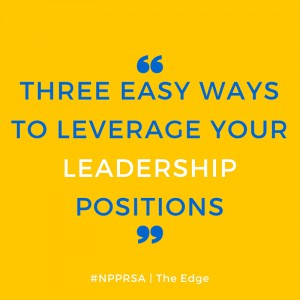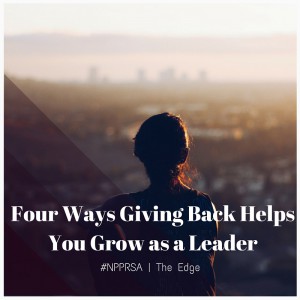 Many people assume that job interviews would be “no big deal” to a PR professional. After all, don’t we get paid to interview and be interviewed for stories? Here’s the catch–most interviews aren’t job interviews. Job interviews are intimidating. They are a necessary evil that many people fear, yet we all encounter.
Many people assume that job interviews would be “no big deal” to a PR professional. After all, don’t we get paid to interview and be interviewed for stories? Here’s the catch–most interviews aren’t job interviews. Job interviews are intimidating. They are a necessary evil that many people fear, yet we all encounter.
If you’re getting nervous just thinking about job interviews, don’t worry. There’s several tips that can help you manage the interview process and put some that PR training to work!
Before the Interview
The interview process begins long before you put on your best outfit. It begins with the job application. How you present yourself in your resume and cover letter impacts whether or not you’re even offered an interview.
To be successful you must customize your cover letter and resume for every job application. Job coaches suggest creating a “master” resume that includes everything in your repertoire so when you apply for a job you can select only the information that best reflects your qualifications. From this list you can also choose a few examples to highlight in your cover letter.
This is where your PR training comes into play. You have spent several years learning how to write persuasively. Take that training and infuse it into your cover letter. Target your writing and convince them that you are the right person for the job.
During the Interview
Believe it or not job interviews aren’t about you, your abilities, or your education. They are about how you can fill a need in their company. More importantly, job interviews are about connecting with people. Hiring is expensive. That’s why companies are concerned with hiring the right person and not just anyone that can do the job.
Yes, you need to be prepared with your resume, portfolio, and lots of great questions that show your interest, but none of that matters if you can’t connect with the people who are interviewing you. Be genuine and leave a lasting impression with everyone you meet—from the secretary to the CEO. You never know who may influence the hiring decision.
Don’t be surprised if companies have researched you on the internet. They recognize that cover letters and resumes are “sterile” representations of your personality. They want to know what you be like on Monday morning after your car broke down and you walked to work in the rain. No, seriously, they want to know who you really are and if you are a good fit for their culture and their current team.
After the Interview
After your interview follow up with a thank you note and include any additional information from your interview. While emails are appropriate, you may find that a handwritten note will leave more of an impression. Electronic communication is easier, but don’t let that stop you from picking up the phone or writing a note.
Be mindful and patient as you wait for their decision. Remember, it’s all about people, so use any follow up conversation to build on the relationships that you began in your interview. At the end of the day, whether you get the job or not, it all comes down to people. They are life’s common denominator no matter what situation you are in or profession you may pursue
As PR professionals we are trained to relate with people. Take that training into your next job interview. You may be surprised to see what happens!
 Ruthann Campbell graduated from Pensacola Christian College with a bachelor’s degree in advertising and public relations. She is currently the Communications Specialist for a non-profit organization located in Rochester, NY. You can connect with her directly to network or share ideas on LinkedIn or Twitter.
Ruthann Campbell graduated from Pensacola Christian College with a bachelor’s degree in advertising and public relations. She is currently the Communications Specialist for a non-profit organization located in Rochester, NY. You can connect with her directly to network or share ideas on LinkedIn or Twitter.






